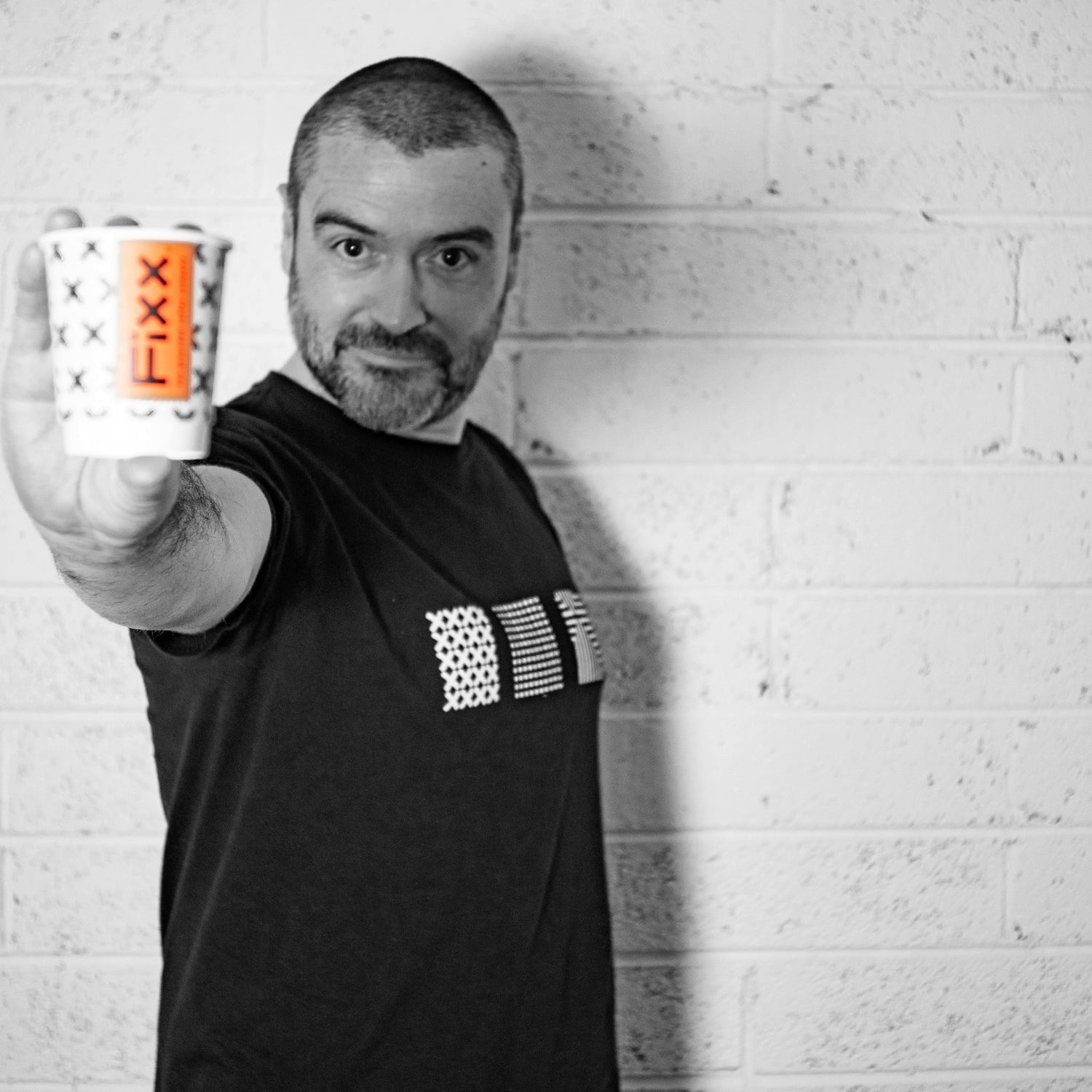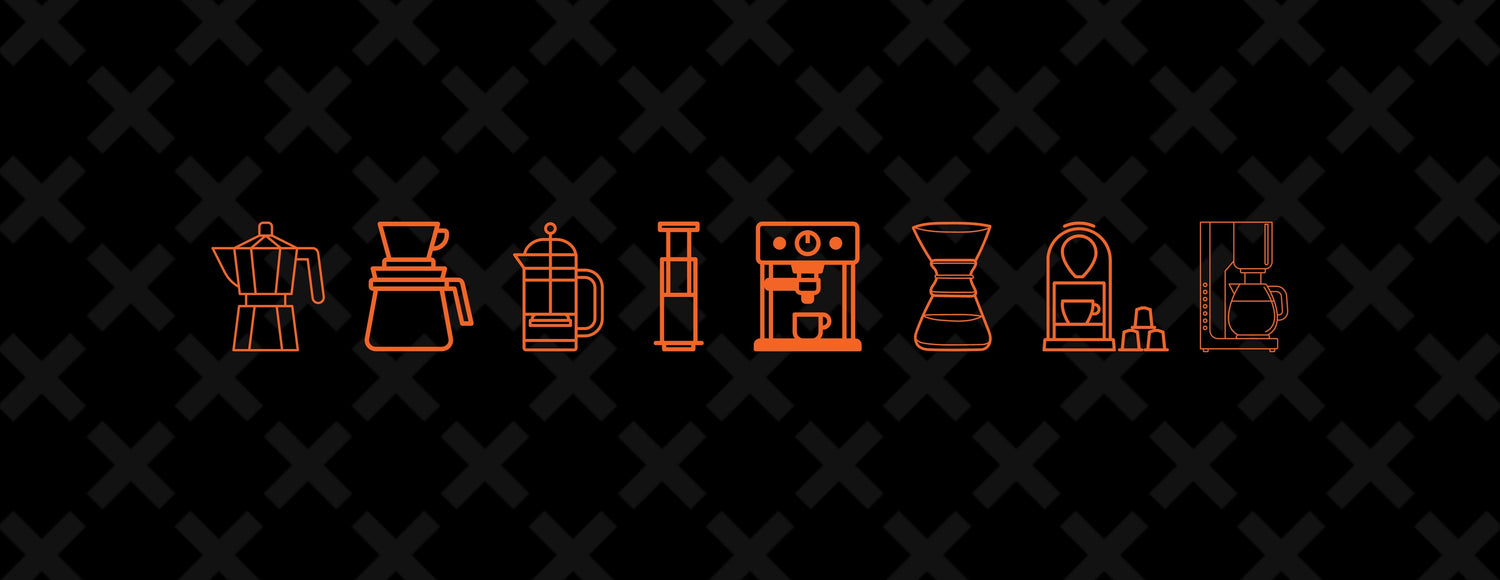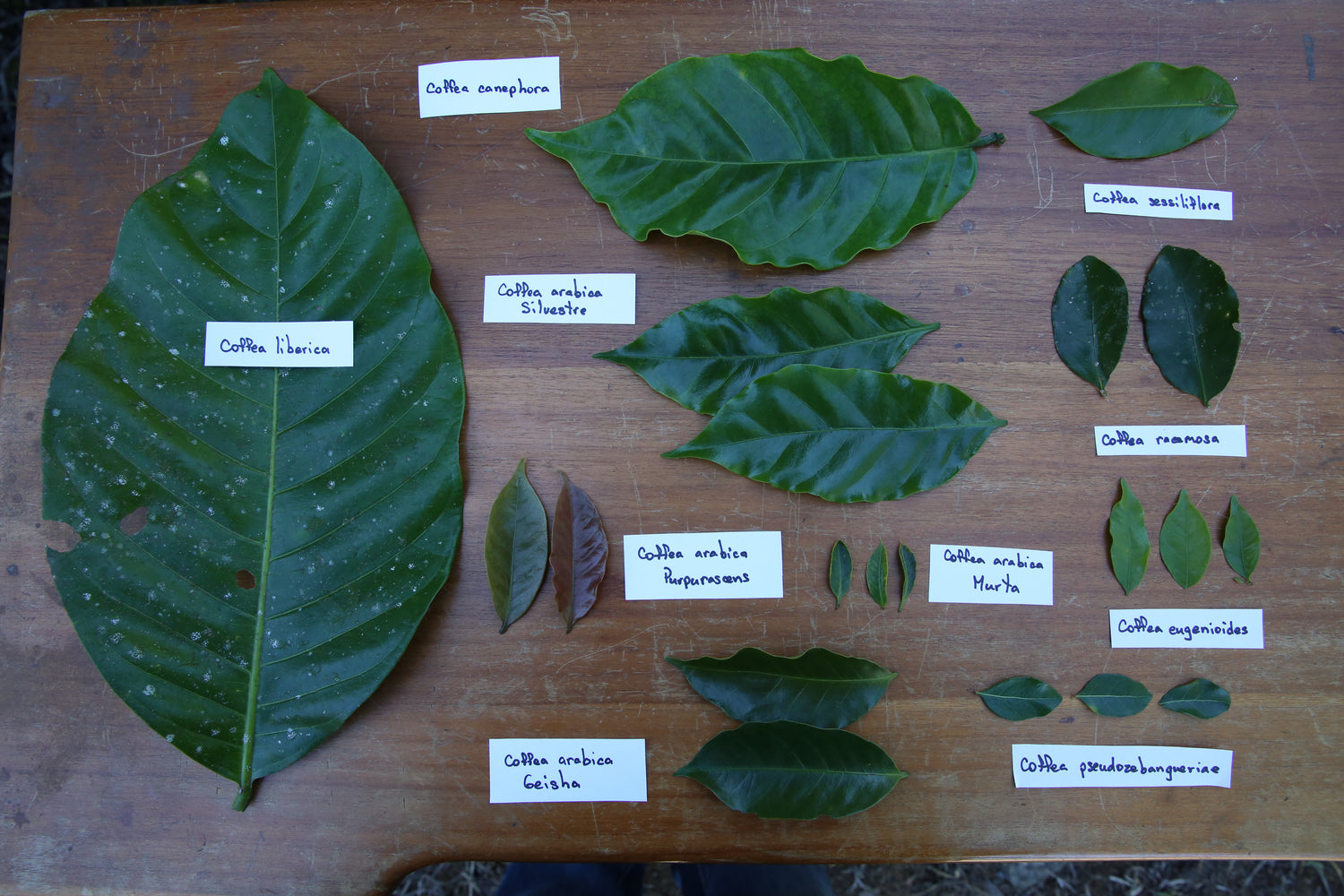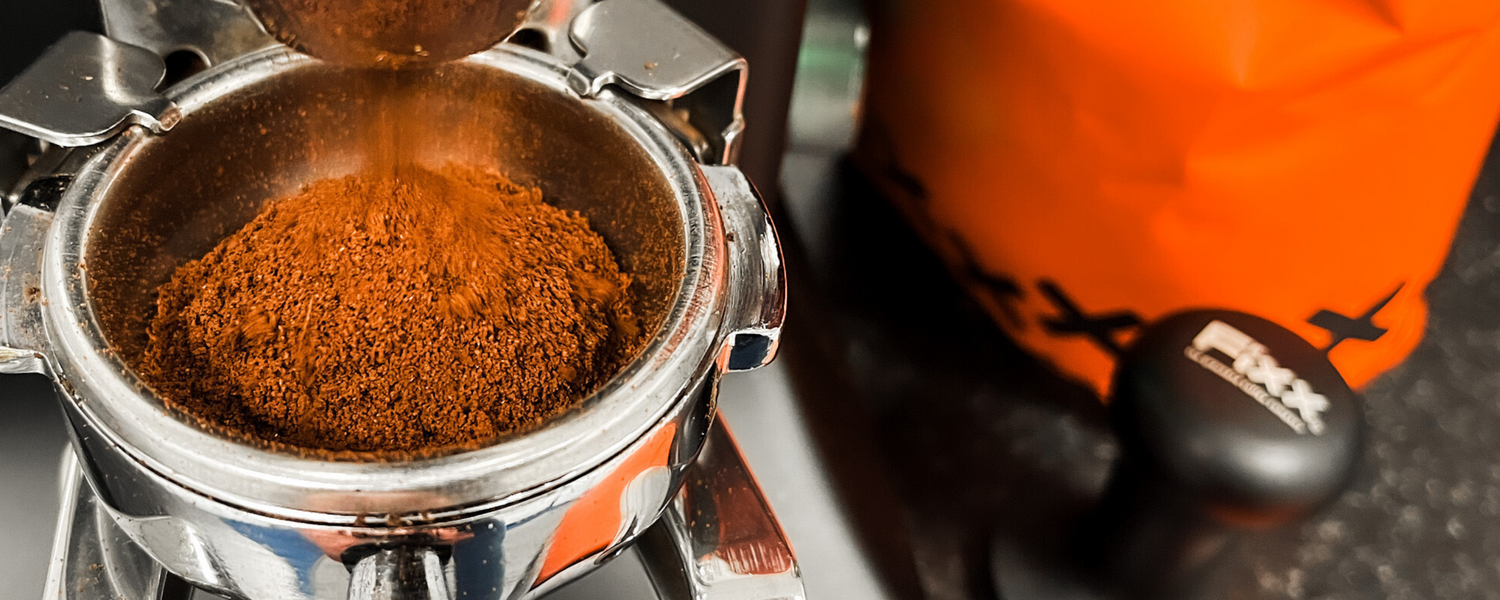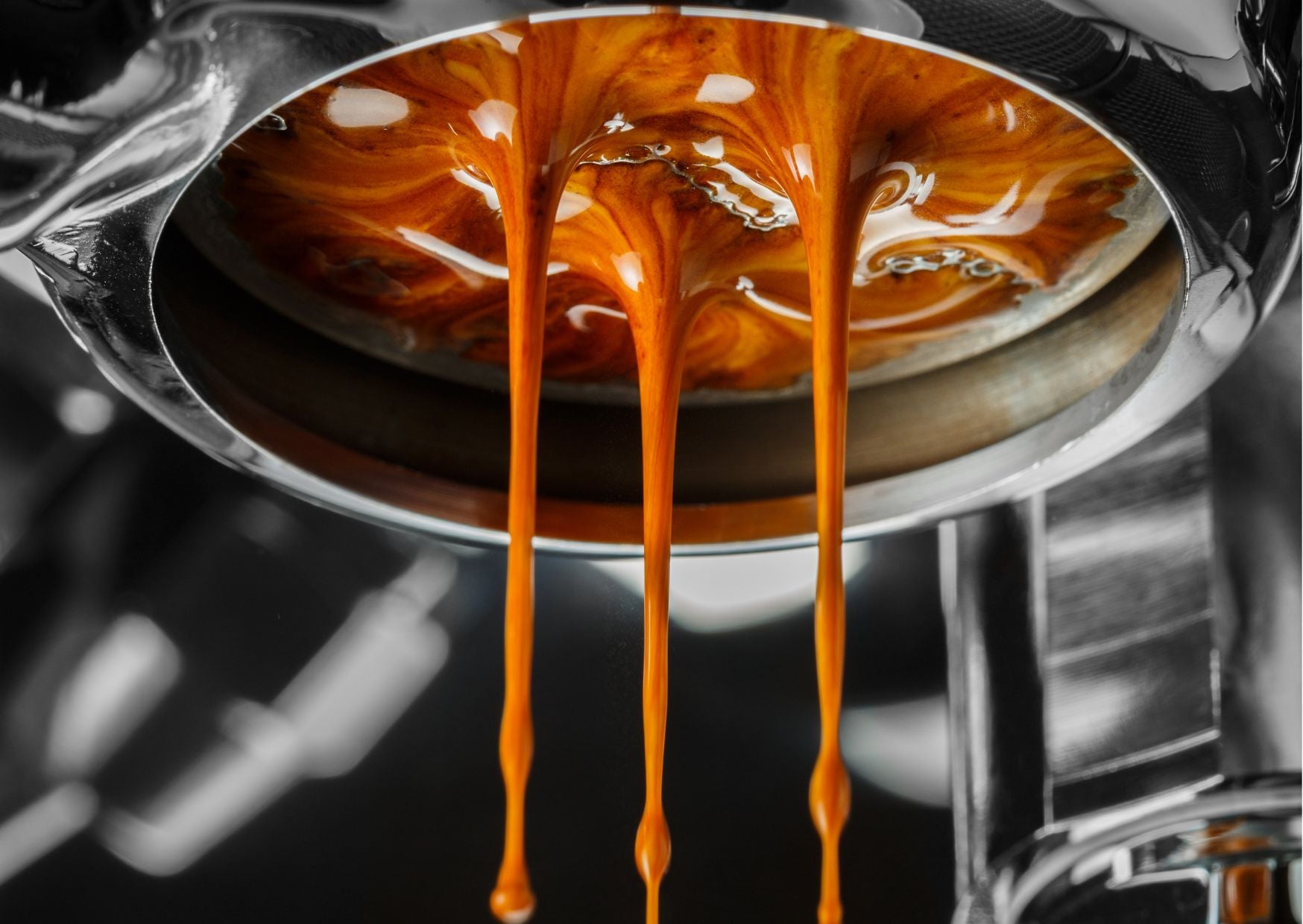
Let's talk about coffee strength!
What does the term "strength" mean in the world of coffee? Well, it's a good question and the answer is more complicated than you might first assume. To begin with, it involves a bit of linguistic flexibility surrounding the word "strength" itself. Are we talking about strength in caffeine content? Strength in taste? Or strength in depth of flavour? And that's just if we are talking about the coffee itself. How we brew and extract the coffee has a significant impact on all of the above. And that is down to the individual.

Light Roast Vs. Dark Roast
Generally speaking, the darker the roast, the bigger and more intense the taste will be on the palate. However, this might be due to a longer roasting process. The lighter the roast, the less time it has spent heating and as a result, the coffee retains more natural origin flavour. Consider it like a marshmallow on the campfire. A short time over the flame will leave you with a flavour sensation of the sweet marshmallow taste combined with the caramelised sugar on the outer coating. Too long on the fire and the sugars will start to burn. You will still have the sweet marshmallow taste, but an intense, bitter taste of the burnt sugar, will accompany it. So if we're talking about strength in terms of complexity of flavour, then many would consider light roasts to be strongest. But if we talk about strength in terms of intense taste, then most would put a dark roast as the strongest end of the spectrum.

Which Roast has the Most Caffeine?
When it comes to caffeine, most of us in the coffee industry aren't too fussed about its existence other than it being a bonus. We're mainly interested in deliciousness. And how do you derive as many fantastic flavours from a simple, humble bean, as possible? For those of you who only want to drink coffee, however, the caffeine content can be relevant. So if the question was, what type roasts contain the most caffeine? Then the answer is a straight forward; it depends. For sanity sake, let's just focus on the bean itself. How we brew coffee brings a lot of different scientific variables to the table. And we'll come to that later anyway.
Recent research in the US has found that caffeine actually stays very stable throughout the roasting process. So the notion that caffeine can be roasted away just isn't true. What a longer roasting time does do, however, is physically change the density of the bean. Meaning, a light roast bean has more mass and weighs more, than a dark roast bean. We are of course talking milligrams here, but we can conclude, if you weight out an exact amount of coffee, say 60g for a drip filter brewer, you will need more dark roast beans to get to that weight. More coffee beans, more caffeine. It doesn't mean darker roasts have more caffeine, that remains stable throughout. It just means you need to use more beans to get to individual weights, which brings us on to our next point, ratio.

What About Ratio?
Ultimately, the coffee to water ratio will have the most significant impact on the perceived strength. The Speciality Coffee Association (SCA) define strength in coffee as the percentage of the cup that is actual dissolved solids of coffee against what is water, with the acceptable range being 1.1-1.5% coffee, and the rest water. Simply put, the more coffee you use, the stronger it will taste. Use more water to coffee, the weaker it becomes.

Different Methods. Different Results.
However, besides the coffee/water ratio, the extraction time and grind size, can contribute to the perception of strength too. The same coffee made using an espresso machine, a cafetiere or a drip filter machine can produce different flavours and different caffeine content for various reasons. Making coffee using filters or a cafetiere requires a coarse grind with a long extraction time. Brewing this way results in high caffeine content, about 200mg in a 12oz cup. Espresso uses a much finer grind and an extraction time of 18-25 seconds, resulting in about 70mg of caffeine in 1oz. That may seem much less but remember the amount of fluid we're talking about here. If you were to have 12oz of espresso, you'd be most likely bouncing off of walls. So even though the extraction time is significantly shorter, the finer grind size creates more surface area for the water to extract the caffeine.

In Conclusion, What is Strong Coffee?
So the ratio of coffee to water, combined with the extraction time, will have the most defining impact on what most people think about when talking of strong coffee. And that comes down to personal tastes. So the real power lies in the hands of you, the coffee maker. To ensure you get the best from your favourite FiXX, we've created a handy brew guide to help you along.
In reality, though, the idea of a strong cup of coffee is individualistic and speaks more about how you want a cup of coffee to make you feel. You might define strength by the complexity of flavour, caffeine content or intensity of taste, possibly even, a combination of all of the above. At the end of the day (or start, mostly) if it makes you go "Ahhhhh", you've made yourself a good strong coffee.
So when you next see a Strength Guide on a pack of coffee with a 1-5 rating or similar, what they are generally trying to communicate is the darkness of the roast. It rarely has anything to do with caffeine content. What they are trying to convey in terms of taste or flavour with a 1-5 scale, is anyone's guess.
Thanks for reading.
Kevin


